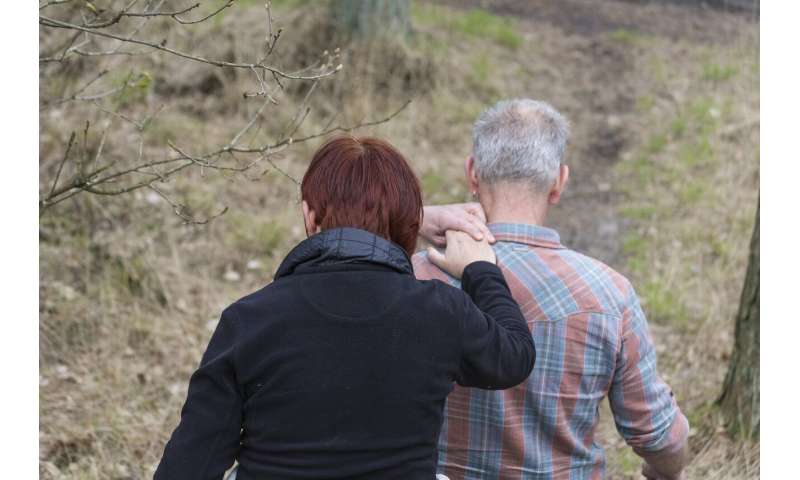Videoconferencing interventions reduce anxiety, distress in remote caregivers

Researchers from the Frances Payne Bolton School of Nursing at Case Western Reserve University shared promising results from a recent study of videoconferencing-inspired stress reduction of distance caregivers of people with cancer.
Sara L. Douglas, lead author of the study, and the Gertrude Perkins Oliva Professor in Oncology Nursing and assistant dean for research at the School of Nursing, presented the findings at the 2020 annual conference for the American Society of Clinical Oncology, which was hosted virtually at the end of May.
The COVID-19 pandemic has forced many caregivers for individuals with chronic or acute illnesses into a distance caregiving role. An expert in her field of research, Douglas’ work focuses on how using technology helps distance caregivers connect with ill loved ones in meaningful ways.
Despite 20% of caregivers of cancer patients falling into the distance caregiver category, anxiety and stress interventions for this group have not been developed until now.
“Distance caregivers experience a tremendous amount of anxiety and distress—often greater than people with cancer themselves,” Douglas said. “With COVID-19, the challenges that distance caregivers face are now the same challenges facing many local caregivers who can’t attend their loved ones’ appointments. Our video conferencing intervention shows that it’s possible to meaningfully reduce anxiety and distress for distance caregivers through fairly simple technology.”
Defining “distance caregiver” as a person who lives more than one hour from the patient with cancer, the researchers developed a three-part intervention composed of monthly videoconference coaching sessions with a nurse practitioner or social worker, videoconference participation in patient-oncologist visits, and access to a website designed with distance caregivers-specific resources.
Participants were split into three groups. The first group received all three components of the intervention; the second received the videoconference patient-oncologist visits, and access to the resource website; and the third group received access to the distance caregiving resource website.
https://youtube.com/watch?v=Vd2pG4xRGbc%3Fcolor%3Dwhite
For the caregivers who received the full intervention (all three parts), 19.2% experienced significantly reduced anxiety and 24.8% reported reduced distress. Of those who received the videoconference patient-oncologist visits and access to the website, 17.3% showed improvements in anxiety scores, and 19.8% reported improvements in distress scores.
“It was a nice result to have to know that the full intervention did the best job of reducing their anxiety and distress,” Douglas said in an interview with Managed Healthcare Executive. She added that the results were promising “for organizations that may not have the resources to provide an advanced practice nurse or social worker to do one-on-one counseling or coaching with distance caregivers that even if you brought the videoconference technology in the exam room, that in and of itself could help reduce some of the anxiety and distress that these caregivers had.”
Videoconferencing interventions to other caregiving populations
Joined by colleagues from the School of Nursing, Douglas’ research topic is set to expand to see if the same similar interventions can work for distance caregivers for people with other chronic conditions.
“A proposal will be going in (Matt Plow, PI) testing the intervention in caregivers of patients with multiple sclerosis. I am going to be testing the intervention in local caregivers of patients undergoing bone marrow transplant or CAR T-cell therapy for blood cancers,” Douglas said. “This study will start—hopefully—this summer. And I am in the planning stages of developing a research application to test the intervention in caregivers of patients with Alzheimer’s disease.”
The hope is for a similar reduction of distress and anxiety of these caregiver groups. Douglas said a common thread of underlying poor psychological outcomes for caregivers of various patient populations is the need for information, emotional support and usually some type of skill training.
Source: Read Full Article


